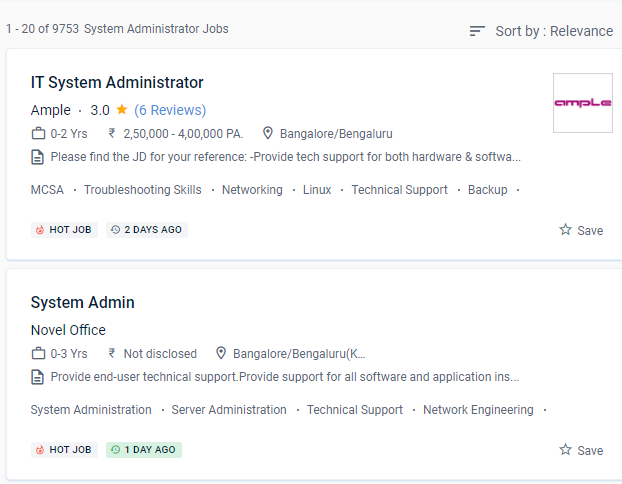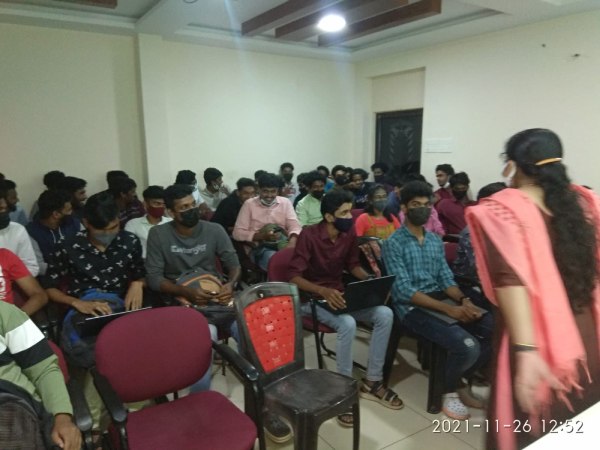System Administration Training by Experts
Our Training Process

System Administration - Syllabus, Fees & Duration
MODULE 1
- System administration introduction, policies, overview, UNIX history and basis
MODULE 2
- File systems and disks
MODULE 3
- Software installation concepts
MODULE 4
- Multi users basics, politics, policies and ethics
MODULE 5
- Automating administrative tasks
MODULE 6
- Networking
MODULE 7
- Backup and disaster recovery
MODULE 8
- DNS
MODULE 9
- SMTP, HTTP
MODULE 10
- Configuration management
MODULE 11
- Distributed computing
MODULE 12
- SNMP, monitoring
MODULE 13
- System security
This syllabus is not final and can be customized as per needs/updates





 When signals halt, system administrators alter cables to repair the transmission media. Circuit boards and CPUs are assembled by computer hardware engineers to produce functional mobile or desktop devices. Network architects have frequently experienced administrators who build data transmission systems from the ground up.
They set up the network card (NIC) so that data can be sent and received appropriately.
The System Administration course in Pune will take you from working on a single machine to managing a complete fleet. You now understand what system administration entails, as well as the functions that system administrators execute and the talents that system administrators possess.
Large companies provide opportunities for system admins to advance through promotions. These experts may go on to become technology and IT managers in the future. Some people excel at determining the company's technology needs as information systems managers. Students who pursue a diploma in this field have a fantastic opportunity to expand their expertise.
When signals halt, system administrators alter cables to repair the transmission media. Circuit boards and CPUs are assembled by computer hardware engineers to produce functional mobile or desktop devices. Network architects have frequently experienced administrators who build data transmission systems from the ground up.
They set up the network card (NIC) so that data can be sent and received appropriately.
The System Administration course in Pune will take you from working on a single machine to managing a complete fleet. You now understand what system administration entails, as well as the functions that system administrators execute and the talents that system administrators possess.
Large companies provide opportunities for system admins to advance through promotions. These experts may go on to become technology and IT managers in the future. Some people excel at determining the company's technology needs as information systems managers. Students who pursue a diploma in this field have a fantastic opportunity to expand their expertise.



















































































